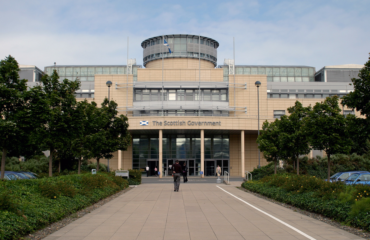A Window of Opportunity? Brexit, the Environment and NGOs

The environmental NGO community has played an important role in shaping post-Brexit environmental law. In this blog post, Dr Carolyn Abbot (Manchester) and Prof Maria Lee (UCL) highlight two key features of the Brexit political landscape that enhanced environmental NGO advocacy or lobbying and the use of legal expertise, from their recently published book, Environmental Groups and Legal Expertise: Shaping the Brexit Process.
The decision to leave the EU rendered UK environmental law and policy uncertain and at risk. It also provided a moment to shape the legal landscape for the next generation. The environmental NGO community grasped that moment and has worked tirelessly over the past nearly five years to influence post-Brexit environmental law.
The pressure maintained by ENGOs has been an important part of the Brexit-environment story. The success of NGO advocacy is always difficult to assess. However, at the broadest level, the simple fact of an Act would be a big achievement for the ENGO community. And whilst the Environment Bill as it stands is deeply imperfect, the community has also been instrumental in considerable improvements along the way. Our work exploring the efforts by parts of the ENGO community highlights the unique circumstances of Brexit, and how they shaped NGO advocacy.
Two tightly entwined factors have dominated the Brexit-environment journey so far. First, the chaotic, even traumatic, political drama around Brexit opened certain doors for the ENGO sector. Second, and apparently in tension with this, the process of leaving the EU was technically and legally extraordinarily complex, demanding detailed, careful work in the shadows. The framing of Brexit-environment largely around ‘governance’ and ‘equivalence’ amplified this technical and legal challenge, compounded by an under-resourced government department.
Brexit provided an extraordinarily dramatic and dynamic political context between 2016 and 2020, with three Prime Ministers, five Secretaries of State for the Environment and two General Elections. Government veered from having no majority in Parliament, to a working majority of 87 seats. And just in case things weren’t difficult enough, in 2020 Government and Parliament had to begin looking for new ways of working within a pandemic that continues to rage.
During the May and Johnson minority governments (June 2017-December 2019), the influence of Parliament was very significant, and Government was unable to push through its hefty legislative agenda. Given that some of that agenda was crucial to the Government’s primary (virtually only) policy objective (leaving the EU), concessions had to be made and some battles were won. The anomalous power of Parliament increased the space for environmental groups, who had realistic prospects of bringing about change by convincing key parliamentarians.
Meanwhile in Government, DEFRA’s Brexit workload was enormous. Further, following the disappointing General Election of 2017, the governing Conservative Party sought stronger environmental policies to appeal to younger voters, who had turned out in large numbers for the Labour Party, creating a whole additional ‘Green Brexit’ agenda for DEFRA.
The ‘austerity’ period between 2010 and 2016 had resulted in a large reduction in DEFRA staffing, and significant recruitment was necessary to deal with Brexit. Some of the 1,700 new civil servants appointed to DEFRA between the EU referendum and October 2019 had limited subject-specific experience. The Environment Bill contains difficult, specialist material, building on decades of legislation, case law and culture at EU level.
So we had a political maelstrom, an under-resourced government department, and a technically demanding process. This challenging context provided the ENGO community with an opportunity to influence and shape the post-Brexit environmental landscape. There was a real demand at a technical level for engagement with trusted and knowledgeable interlocutors. The appointment of Michael Gove as Secretary of State at DEFRA transformed the political space for the ENGO community, as he and his Department engaged energetically with ENGOs, who had unprecedented access.
And as parliamentarians exerted their influence, they too sought trusted expertise. Briefings, meetings with individual parliamentarians and their staff, and submissions of oral and written evidence in multiple Select Committee inquiries, provided avenues of influence for environmental groups.
The return of a large government majority in the 2019 General Election diminished but did not wholly negate the influence of Parliament. Those parts of the ENGO community that had been engaged with Parliament continued to enjoy trusted insider status, although with a less direct route to impact.
More generally, the ENGO community grasped the opportunities. It exercised considerable influence within both DEFRA and Parliament during our case study, contributing to shaping the material that we are now working with, in particular the much delayed, once-in-a-generation Environment Bill still making its way through Parliament. The hunger of those with power for environmental expertise, perhaps especially for legal expertise incentivised some ENGOs to adopt a particularly lawyerly type of insider advocacy, pooling their otherwise thinly dispersed legal expertise by working collaboratively to achieve a set of shared goals. Competition between ENGOs for profile, resource and identity was to a great extent put to one side.
Civil society is not a passive victim or beneficiary of the politics of the moment. In this case, the environmental community contributed to shaping its opportunities for influence, by becoming trusted and convincing expert interlocutors with Government and Parliament, and by contributing to the equivalence and governance framings of Brexit, which were never inevitable and emerged in an active and constructive process., Much of the governance work by ENGOs aimed precisely to shape both their space to work after Brexit.
Even in the dawn of a new Environment Act, the sector must continue its collaborative work to strengthen environmental standards and the institutions that underpin their implementation. As in our case-study period, windows of opportunity will shift and change over time. Environmental groups, as they have before, must be agile and quick to respond to new dynamics.
About the authors
Carolyn Abbot is Senior Lecturer in the Law Department at the University of Manchester. Maria Lee is Professor in the Faculty of Laws at UCL and a Brexit&Network associate.




